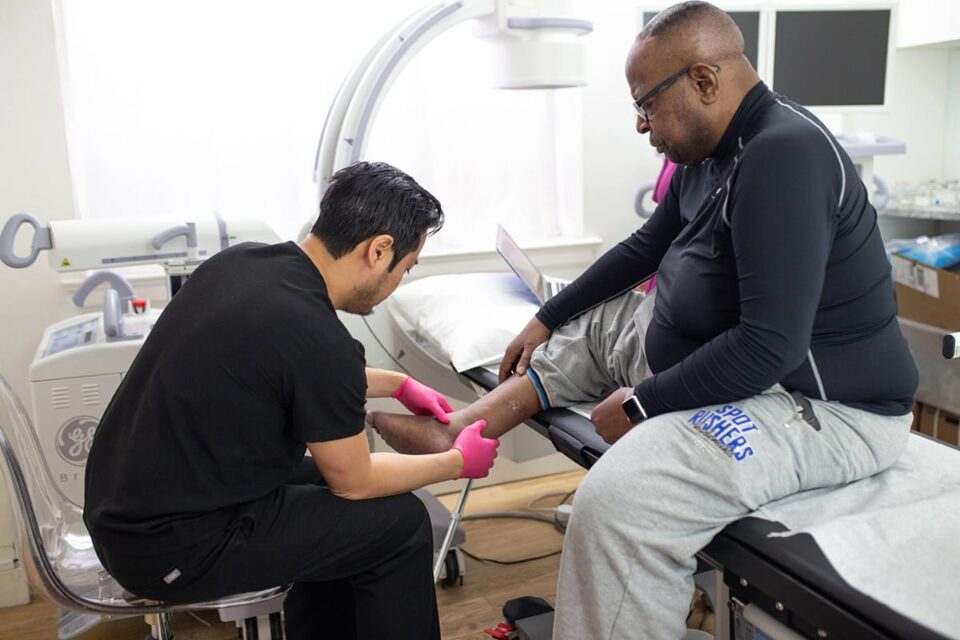When it comes to maintaining optimal vascular health, understanding the advantages of consulting a specialist can make a significant difference in treatment outcomes and overall well-being. But, when faced with vein-related issues, many might wonder, “What is a vein doctor called?” In this detailed exploration, we will uncover not only the title and expertise of vein doctors but also delve into the benefits of seeking their specialized care for your vein health.
Table of Contents
Unveiling the Expert: The Vein Doctor
Vein doctors, professionally known as Phlebologists, specialize in diagnosing, treating, and managing diseases related to the venous system. Their expertise lies in addressing conditions such as varicose veins, spider veins, venous insufficiency, and deep vein thrombosis. Phlebologists possess comprehensive knowledge and training in procedures that alleviate symptoms, improve aesthetics, and enhance overall vascular health.
Advantages of Visiting a Phlebologist
Tailored Diagnostic Approaches
One of the primary benefits of consulting a phlebologist is their ability to employ specialized diagnostic tools to accurately assess vein health. Techniques such as Duplex Ultrasound allow these experts to visualize the venous system in detail, leading to precise diagnoses and tailored treatment plans.
Cutting-Edge Treatment Options
Phlebologists are at the forefront of utilizing advanced treatment methods that offer less discomfort and quicker recovery times compared to traditional surgery. Treatments like sclerotherapy, endovenous laser therapy (EVLT), and radiofrequency ablation (RFA) are minimally invasive and provide effective relief from vein-related symptoms.
Comprehensive Care
A vein specialist not only focuses on the immediate treatment of visible vein issues but also addresses underlying causes and risk factors. This holistic approach helps in preventing future venous problems and ensures long-term health of the vascular system.
Expertise in Cosmetic Outcomes
For many patients, the appearance of varicose or spider veins is a significant concern. Phlebologists understand the importance of aesthetic results and offer treatments that minimize scarring and discoloration, enhancing the skin’s appearance.
Preventative Strategies
Phlebologists also play a crucial role in educating patients on lifestyle changes and preventative measures to protect against vein diseases. This includes advice on exercise, nutrition, and managing risk factors like obesity and sedentary behavior.
Common Vein Conditions Treated by Phlebologists
Varicose Veins
These are enlarged, twisted veins that often appear on the legs. While they can be a cosmetic concern for some, they may also cause discomfort, pain, and swelling. Phlebologists use various minimally invasive techniques to close or remove these veins, relieving symptoms and improving appearance.
Spider Veins
Similar to varicose veins but smaller, spider veins can appear on the legs or face. They are treated with sclerotherapy or laser therapy, procedures that are well within the expertise of a vein specialist.
Chronic Venous Insufficiency
This condition occurs when the venous wall and/or valves in the leg veins are not working effectively, making it difficult for blood to return to the heart. Phlebologists offer treatments that can alleviate symptoms and prevent complications.
Deep Vein Thrombosis (DVT)
DVT is a serious condition where a blood clot forms in a deep vein, usually in the leg. Early diagnosis and treatment by a vein specialist are critical to prevent potentially life-threatening complications such as pulmonary embolism.
Finding the Right Vein Specialist
When seeking care for vein-related issues, it’s important to choose a qualified and experienced phlebologist. Look for a doctor who is board-certified in phlebology or vascular medicine and has a track record of successfully treating patients with conditions similar to yours. It’s also beneficial to select a specialist who stays updated with the latest advancements in vein treatment technologies and methodologies.
Conclusion:
Understanding the role and expertise of a vein doctor is the first step toward addressing and preventing vein-related health issues. Phlebologists, with their specialized training and advanced treatment options, offer significant advantages to individuals suffering from venous diseases. By tailoring diagnostic approaches and treatment plans to each patient’s unique needs, these specialists not only improve the health and functionality of the venous system but also enhance the quality of life for those they treat. So, if you’re experiencing vein-related concerns, remember the importance of consulting a vein specialist—your pathway to optimal vascular health and wellness.

